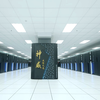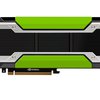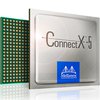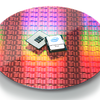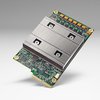Category – Feature Article
A new Chinese supercomputer, the Sunway TaihuLight, captured the number one spot on the latest TOP500 list of supercomputers released on Monday morning at the ISC High Performance conference (ISC) being held in Frankfurt, Germany. With a Linpack mark of 93 petaflops, the system outperforms the former TOP500 champ, Tianhe-2, by a factor of three. The machine is powered by a new ShenWei processor and custom interconnect, both of which were developed locally, ending any remaining speculation that China would have to rely on Western technology to compete effectively in the upper echelons of supercomputing.
NVIDIA used the opening of the ISC High Performance conference (ISC) on Monday to launch its first Pascal GPU targeted to high performance computing. The announcement follows on the heels of the introduction of the Pascal P100 at the GPU Technology Conference in April, a device which was aimed at the deep learning market. The new HPC GPU, however, differs from its deep learning sibling in some surprising ways.
Just as Intels newly minted Omni-Path interconnect is challenging InfiniBand for supremacy in the HPC datacenter, Mellanox is ramping up its 100G product line. The latest addition is ConnectX-5, the companys newest adapter, which will offer MPI offloading under the banner of co-design. The new network device will come in InfiniBand and Ethernet flavors and will also include additional capabilities and performance tweaks on top of 100G speeds.
There was a time when the only thing that the high performance computing industry paid attention to was FLOPS. Indeed, for most of the history of HPC, floating point operations per second was the one true metric, and only those machines that delivered them in the largest quantities were deemed to be true supercomputers. Performance, after all, is HPCs middle name.
Intel has released its latest four-socket and eight-socket Broadwell-EX processors into the wild this week, which follows on the heels of the dual-socket Broadwell-EP chips the company launched at the end of March. The new chip family, known as the Xeon E7-8800/4400 series, are destined for scale-up servers running applications with prodigious appetites for memory and processor cores.
Cavium has launched its latest ARM server processor, the ThunderX2, a second-generation SoC aimed at the same datacenter workloads that are currently dominated by Intels Xeon CPUs. The new chip is designed to go head-to-head with those Xeons, while at the same time get out in front of the 64-bit ARM competition from Applied Micro, Broadcom, and others.
The fourth industrial revolution is upon us. At least thats the view of German business leaders and the government, who are blazing a new path in manufacturing with the Industrie 4.0 initiative. As in the third industrial revolution, information technology will be key enabler. But what comes next will intimately link manufacturing with the internet, the ubiquitous digital platform of the 21st century, along with other advanced computer technologies. The result will be what is sometimes referred to as the smart factory.
Last week at the Google I/O conference, it was revealed the search giant has been using its own custom-built ASIC to accelerate the machine learning capabilities that now underlies much of the Google cloud. The microprocessor, known as the Tensor Processing Unit (TPU), was designed by Google engineers to speed up the TensorFlow software that the company uses to drive much of its machine learning functionality. TensorFlow began as a machine learning research project, but later moved into production, and is now deployed in an array of applications, including Google Cloud Speech, Gmail, Google Photos, and Search. According to the …
Supercomputer-maker Cray has introduced Urika-GX, the companys newest version of its enterprise-focused data analytics product line. With an emphasis on agility, the system merges the functionality of the existing Urika-GD and Urika-XA appliances, which provide platforms for graph-based and Spark/Hadoop-based analytics, respectively. Urika-GX wraps both of these capabilites into a single box, and does so largely with standard hardware and software.
Until fairly recently, Japan was the only country in the world with a definitive roadmap to its first exascale supercomputer. But over the last three months, specific plans for exascale systems in China, France, and the US have been revealed. If those schedules hold, between 2020 and 2023, all four countries will stand up their first exascale machines. The race to the next supercomputing milestone is finally starting to take shape.
